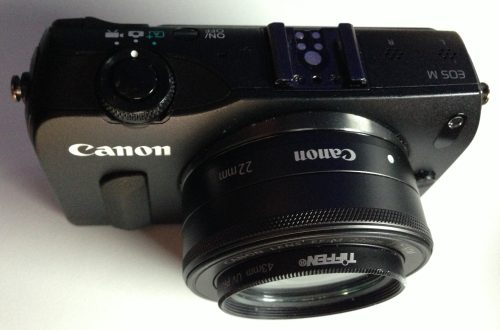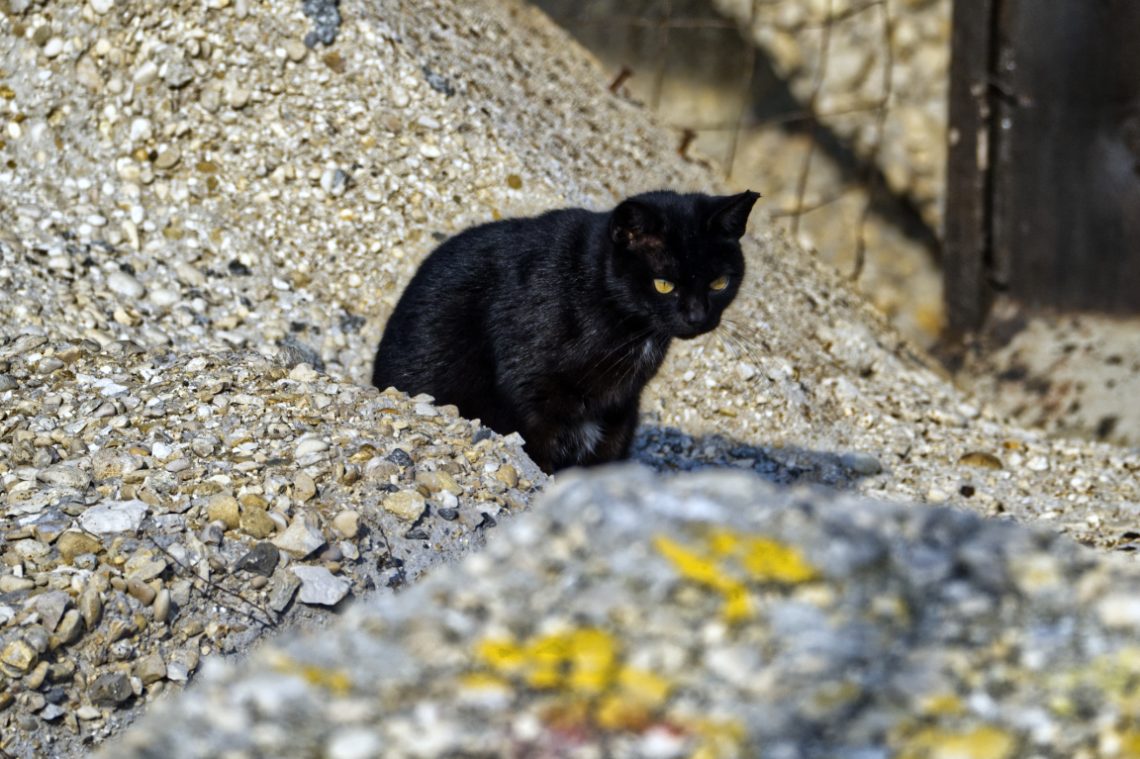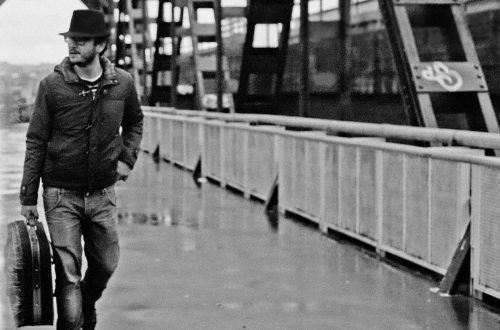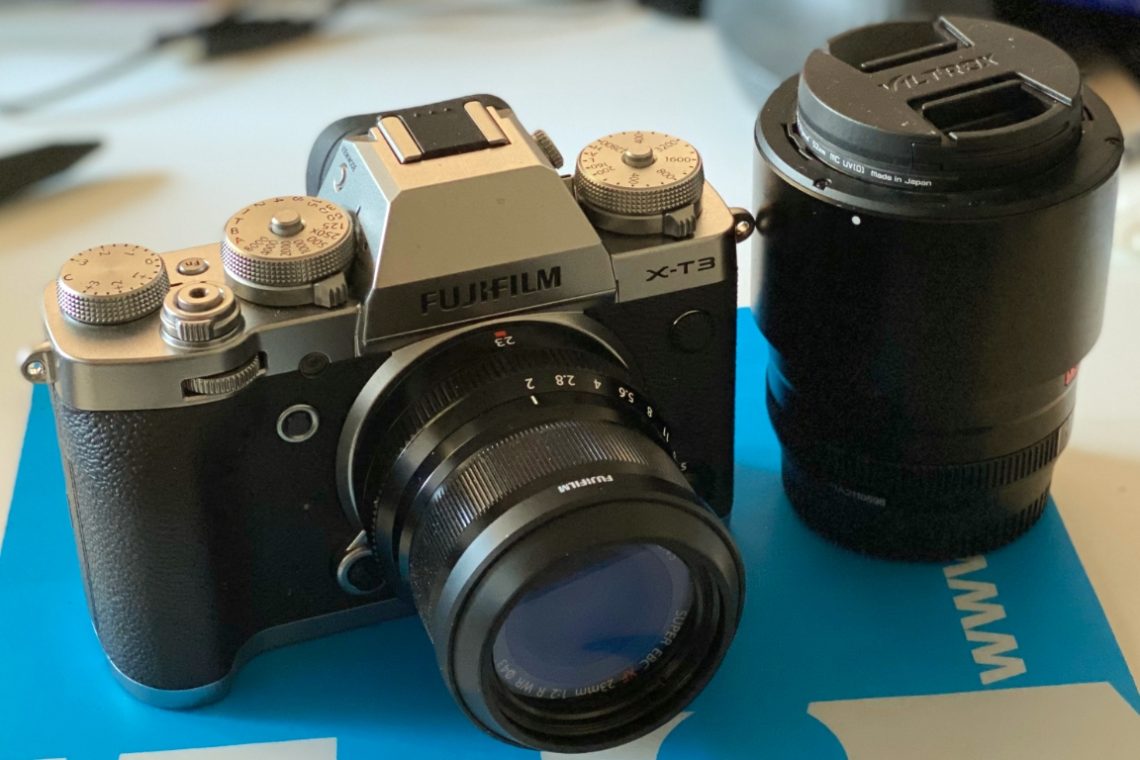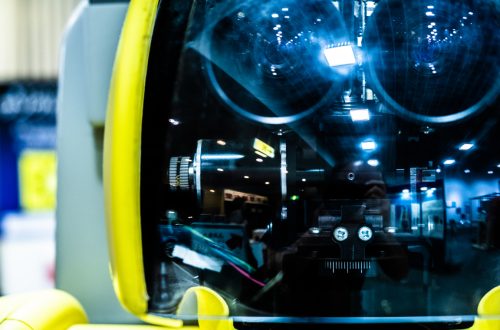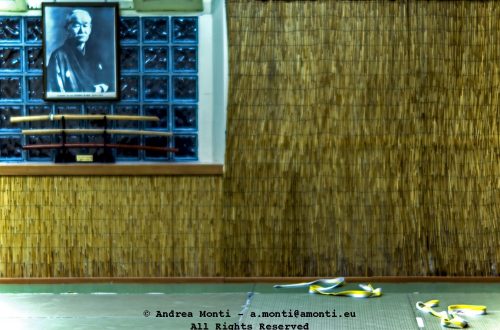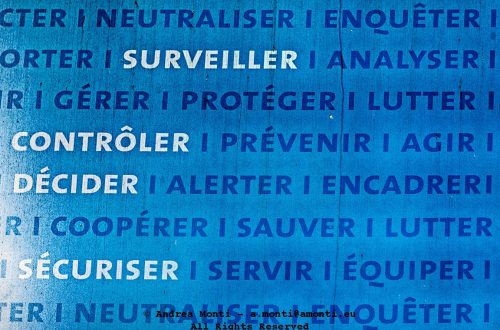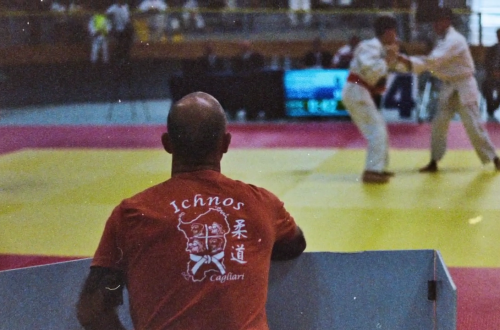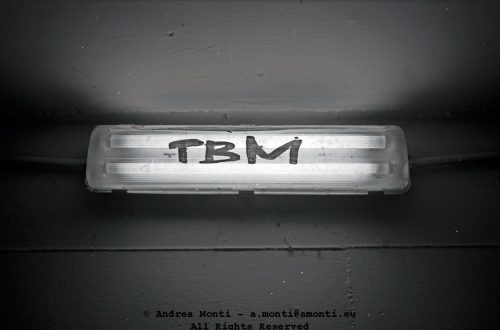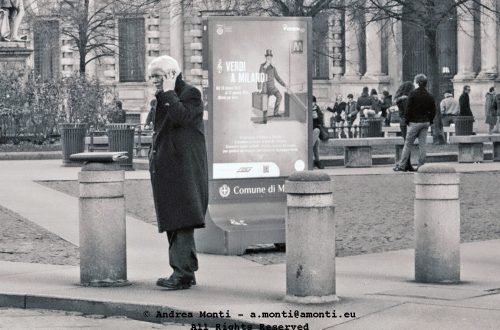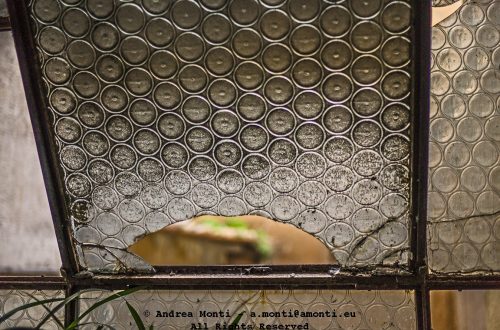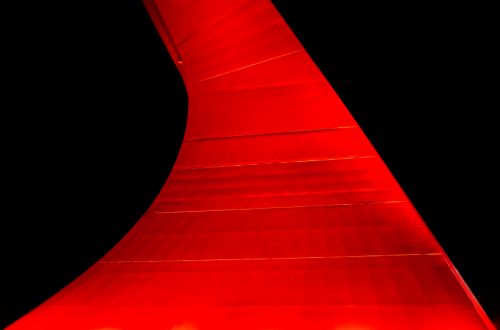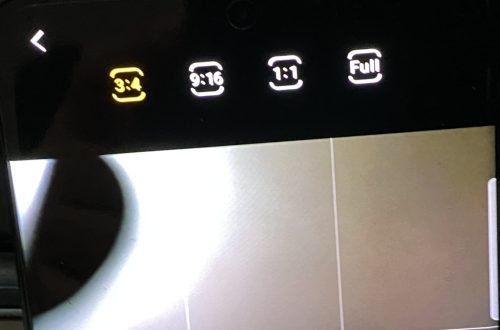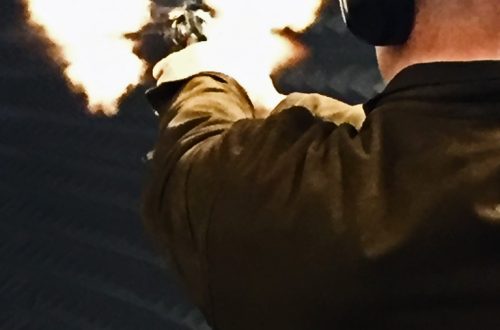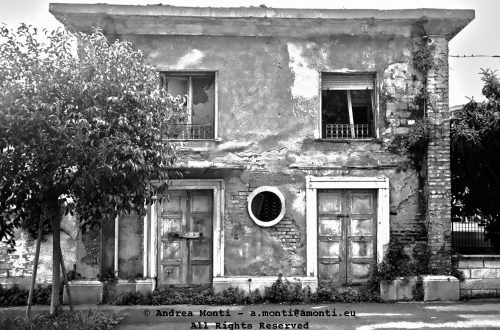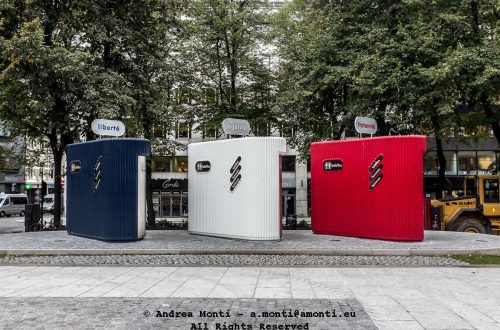-
Imitation of Banksi
Some photographs happen because you spot them at the right time; others, because the right lens lets you see them from a distance before they disappear. This was the latter. Walking past a construction site, I noticed a splash of red against the pale, textured hoarding — a painted figure in a hat and long coat, back turned, hands behind him, staring through a broken window. The text alongside reads: “Segui il cantiere – Un omaggio ai pensionati, risorsa del quartiere” (“Follow the construction site – A tribute to pensioners, the neighbourhood’s resource”). It’s part humour, part homage, a knowing wink to the archetypal retiree who spends his days watching…
-
Black Cat
-
Fast Roping
Photographing action is often about timing, but in this case it was also about proximity — or rather, the lack of it. The Fujinon 100-400mm on the Fuji X-T3 gave me the reach I needed to isolate the firefighter mid-descent, suspended against a Mediterranean backdrop. The long lens flattened the perspective just enough to bring the vegetation, the sea, and the distant breakwater into a coherent, layered background, without stealing focus from the main subject. The composition works around the strong diagonal created by the rope, which slices through the frame and guides the viewer’s eye from top left to bottom right. His bright helmet and high-vis vest aren’t just…
-
Fujifilm X-T3 Video Cheat Sheet
Although the Internet (and Youtube) are full of information about using the Fujifilm X-T3’s video capabilities —kudos to Chris Lee’s Pal2Tech Youtube channel for his incredible work— having a ‘quick ‘n’ dirty’ cheat sheet works better when all you need is information and not entertainment. This cheatsheet is organised according to (my personal) logic rather than to the camera’s menu order. It starts from the outside and goes deep down the intricacies of the various features. It also highlights some techicanilities that, although written in the manual, have not so obvious implications. A final word: this is a work-in-progress. More information will be added as soon as they become available.…
-
Dark Cloud Over San Pietro
The tension wasn’t subtle. I framed this on a humid Roman afternoon, the kind where the air sticks and light flattens the facades. At the vanishing point: San Pietro, serene and untouchable, a facade that’s absorbed centuries of ceremony and conflict. But in the foreground—armoured steel, automatic rifles, and red-striped barricades—modern anxieties assert themselves. This is what occupation looks like when dressed as precaution. The symmetry of the shot exaggerates the contrast. The axis from the dome to the vehicle is mathematically clean, unnerving in its balance. You can’t not look down the middle, and once your eyes reach the Iveco Lince, you realise you’re not a tourist anymore. You’re…
-
Technological Memento
-
Taking-Off
This is a test for the Viltrox AF 56/1,4 XF’s autofocus. The pidgeon took-off suddenly and I just had to point and shoot. The lens behave fairly. I didn’t plan this shot—I reacted. The pigeon launched off the cobbles just ahead of me, wings outstretched, backlit by the fragmented morning light reflecting off the street. I tracked it instinctively and pressed the shutter a fraction before it left the frame. For a moment, everything aligned: subject, motion, light, and a surprising stillness in the middle of movement. The composition isn’t textbook. The bird isn’t centred—more like hovering toward the bottom third, wings drawing a wide V across the soft texture…
-
A Fountain’s Jet
I took this shot with a Viltrox AF 56/1,4 XF at full aperture. The focus reacted swiftly, and the colours’ rendition is pretty accurate. There is minimal colour fringing. However, it is more likely caused by air bubbles rather than by the lens itself. Like its bigger sibling, the AF 85/1,8 XF, this lens is excellent. Photographing water at f/1.4 is, in many ways, an exercise in precision gambling. The Viltrox AF 56mm f/1.4 XF, mounted on the Fuji X-T3, gave me a razor-thin depth of field to work with. At this aperture, there’s no room for hesitation – you either nail the plane of focus or lose the subject…
-
Using a 1960 Leica Elmarit 90/2,8 on a Fuji X-T3
In short The Leica Elmarit 90/2,8 works flawlessly on a Fujifilm X-T3, also with third-party adapters having no electronic connection with the camera. It provides excellent results, notwithstanding its age. Using this lens for street photography requires using focus-peaking or zone focus. In this latter case, proper training is necessary to correctly assess the distance from the subject. Image quality On the X-T3 the lens preserves its unique identity. Its colour rendering gives pictures a distinctive ‘retro’ character. The Elmarit shows an excellent resolving power: thin lines are visible and well defined. Chromatic aberration is visible at F2,8. It disappears from F4 and ahead. Anyway, the lens profile is well…
-
In praise of ‘cheap’ lenses for ‘pro’ works
Full disclosure: I have no relationship with Viltrox. I purchased the lenses with my own money and did not receive any request to write this post. I have recently discovered Viltrox, a Chinese manufacturer of lenses for the Fujifilm X-system. I am using the AF 85/1,8 II XF and the AF 56/1,4 XF and I am very satisfied by their performance. They are very good for ‘professional’ sessions, however, there are many online reviews that snobbishly rate these lenses as ‘amateur’, ‘non-professional’ or ‘first time portrait photography enthusiasts’ grade. I think that these reviews are unfair and here is why: What does ‘better’ mean? It is a known fact that…
-
Viltrox AF85/1,8 II XF. Reflexless?
I wanted to see how the Viltrox AF85/1,8 II XF handled flare, contrast, and chromatic control in the most demanding conditions: shooting straight into the sun. The result was surprising. No ghosts, no halos, no rainbow arcs. The field stayed clean, with the light falloff natural and evenly graduated. For a lens at this price, that’s more than acceptable — it’s exceptional. This is an Out-of-Camera Jpeg, shot at F8 and ISO 160, unprocessed but for the size. The results are Incredible for a lens that costs so little…
-
Footprints
-
Deserved Rest
-
A Street-Skater on the Waterfront
I came across him by the harbour on a day when the wind carried the smell of salt and diesel from the moored fishing boats. He wasn’t performing for an audience—just skating alone, immersed in his own rhythm. His movements were sharp but fluid, somewhere between dance and martial art. I wanted to capture that moment when the body leans into balance, teetering on the edge of a fall but never crossing it. The setting presented an immediate visual contrast: the fluidity of his posture against the static, almost heavy backdrop of the docked ships. I framed him to the left, letting the background breathe, so that the masts, ropes,…
-
Splinter
-
Pentax SMC-A 50/1,7 – Nikkor 50/1,4 – Summicron 50/2
The left slice is taken with a Pentax K-1 and SMC-A 50/1,7, the centre with a Nikon D750 and a Nikkor 50/1,4, the right with a Fujifilm X-T3 and a Summicron 50/2. All the cameras were at their base ISO (100 for the Pentax and Nikon, 160 with the Fujifilm), at F2 and aperture priority. The K-1 and the X-T3 photos were shot in manual focus. Only the K-1 has IBIS stabilization. The jpg is taken in Affinity by slicing each OOC RAW file without post-processing.



